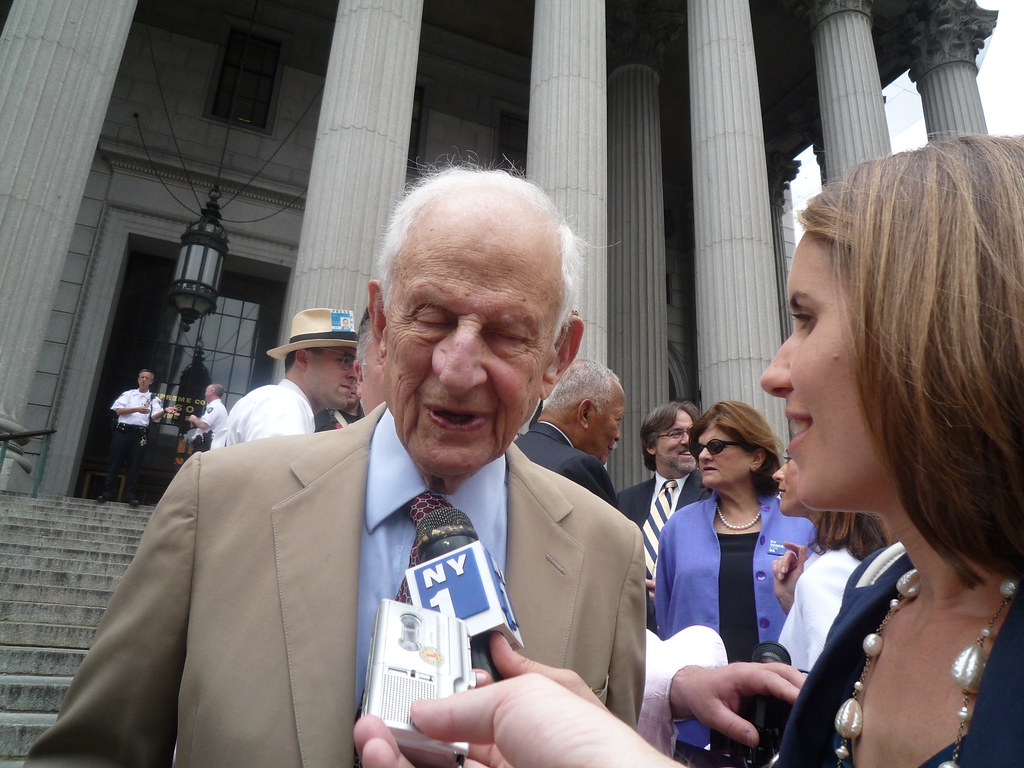
Robert Morgenthau served as Manhattan district attorney from 1975 to 2009 and died on Sunday a week shy of 100. I didn’t know him well but in reading many of the excellent obituaries, I haven’t seen this anecdote mentioned and I feel a responsibility to share it. Somehow it didn’t make it into the final cut of Leadership, so I think it’s possible it might never be shared if I don’t do so here.
In the immediate aftermath of the Sept 11 attacks, the leaders of the key city and state agencies would all meet at Pier 92 on the Hudson River. Heads of the health departments and energy and buildings and traffic and of course fire and police and all the others. I was the only journalist in the room and an insane level of credentials were needed to get onto the pier, and then a bunch more to get inside the inner sanctum. It was a strange spot. I was working for Time Inc, but also answered to Rudy Giuliani and Tina Brown – this wasn’t straight journalism. But it was a critical moment in history and I felt a duty to take careful notes and pay careful attention. To bear witness.
Sometimes representatives from the federal government would be there, like Joe Allbaugh from Fema. And occasionally there would be others who would try to get a message through. Eliot Spitzer, for example, was the Attorney General at the time and sent word that he wanted a role monitoring the funds that companies and donations were pouring into the recovery.
So one day Robert Morgenthau showed up. He had already been a legend for decades by then, cemented by the Adam Schiff character in early Law and Order. And Rudy’s teams always included a ton of former prosecutors. So everyone was eager to hear what he had to say and he was given five minutes of precious “everyone at the table” airtime one morning.
You have to understand that Rudy was just crushed for time in those first few weeks after the attack. Even his crazy three hours of sleep a night (a year after prostate cancer…) didn’t leave enough time for all the decisions and communicating and funerals and comforting that were required. So getting 5 minutes to speak at that meeting was a big deal and Morgenthau, who’d have been 82, understood that.
He surprised me (and maybe everyone) by speaking not about crime in Manhattan. He talked about how the Museum of Jewish Heritage—NYC’s Holocaust Museum, which he chaired—was planning to stay open in Battery Park City. I remember thinking “OK, that’s swell and in keeping with Rudy’s pleas for everyone to recommit to lower Manhattan … but kinda small potatoes to bring up during this intense meeting.” I didn’t grasp what Morgenthau was actually doing until talking it over privately with Rudy a couple weeks later.
Rudy told me that Morgenthau was making the point, in his customary understated “Jewish patrician” way, that the aftermath of September 11th was actually the most appropriate time to talk about the Holocaust. Morgenthau got it before most – that our only chance at preventing genocide was being committed to the unvarnished memory of its horrors.
Over the next few years, I found myself at many different events with Rudy that had some connection to these lessons. The first-ever singing of Hatikva at the Reichstag, the unveiling of a monument to the ghetto resistors in Warsaw, a Holocaust museum in El Paso (yes, there’s a Holocaust museum in El Paso, and you can see Mexico from it and we all dared each other to eat the superhot sauce at the TexMex place and I was dying, to the delight of my fellows).
So that’s my Robert Morgenthau story. It’s about zakhor. Remembering.